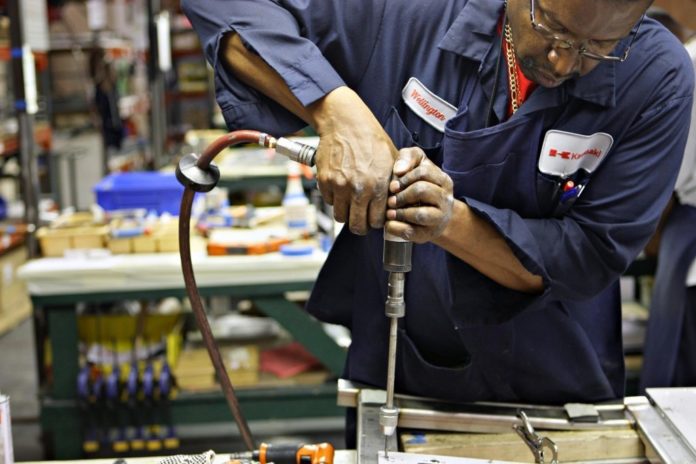
WASHINGTON – Productivity among U.S. workers increased at an annual rate of 1.8 percent in the second quarter, less than the 2-percent rate that economists polled by Bloomberg News had expected.
The 1.8-percent productivity increase comes after a revised first-quarter increase of 0.7 percent, according to the Labor Department. Coupled with downward revisions of productivity growth rates for the past three years, evidence is mounting that the productivity surge that began in the 1990s and which helped hold inflation in check is ending.
In addition, labor costs increased 2.1 percent for the quarter; for the 12 months ending June 30, the increase of 4.5 percent.
“It’s tough to build the case here that productivity isn’t downshifting,” said Michael Feroli, an economist at JPMorgan Chase & Co. in New York and a former Fed forecaster. “The Fed is watching unit labor costs and is concerned about it. It won’t be ignored at the meeting.”
The Labor Department’s revisions for 2006 showed productivity increased 1 percent in 2006, from a previously reported 1.6 percent, while labor costs, which account for about two-thirds of the cost of producing a good or service, rose 2.9 percent in 2006, down from the previous estimate of 3.3 percent. Commerce Department revisions pegged GDP growth for the 2004 to 2006 period at 3.2 percent per year, 0.3 percentage points lower than had been reported.
Despite slower productivity growth and increasing labor costs, market observers do not think the Fed will change its interest rate stance. “History is history,” said Brian Bethune, an economist at Global Insight Inc. in Lexington, Mass. “It’s not necessarily going to cause the Fed to change policy. The key is whether any of it is translating into a pricing impact. The answer is no.”











